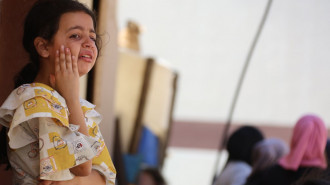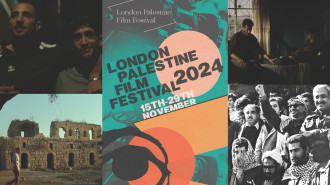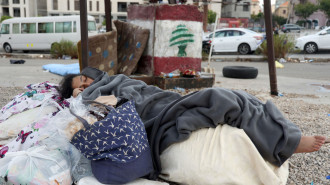Abdullah Laroui: When the intellectual reveals the facts
Abdullah Laroui's book Thoughts of the Morning: The preferred Morocco or the Morocco of dreams, is the right book at the right time and the lucky author who was only read by elites and university students is now being read by a wider audience.
The publisher of the book, the Arab Cultural Centre, is undoubtedly very happy about the record sales achieved by the book, even as the Moroccan book market suffers a great decline.
Lady luck struck the publisher after the Moroccan thinker Abdullah Laroui published his thoughts and writings on the political and social developments in Morocco and the Arab world, which deal with issues such as political Islam, terrorism, Arab - West relations, the problems of identity and language, Arab intellectuals being coopted by ruling regimes and the political corruption of societies among others.
| Laroui considers the 11 September attacks to be a turning point that changed the course of modern history. |
These unconventional topics dealt with in the book in written in journalistic language have always captivated audiences and have been the talk of gatherings and salons,. But the author of of Current Arab Ideology and The Concept of the State, delved into details that were until recently kept secret. Moroccan and Arab elites used to live, write, rule and die without revealing the secrets of daily life and public affair in their countries.
Speaking out
Contrary to the common practice in the Arab world, Laroui confirms that it is time to speak out, as silent elites who govern then leave unchallenged deny the truth to later generations. This, Laroui believes, will have clear results on the future and the lives of those youths, who will undoubtedly commit the same mistakes in the absence of a clear record of how and how not to manage various authorities, including intellectual authorities.
"Every sentence written, in order to evaluate it justly we must examine the salient context at the time it was written, before the attacks that made the US ignorant. Since that incident, all of us fear the ignorance of the US, we keep our heads down and remain silent, hoping that the storm will pass and that the weather will clear up. Will that happen? Many people in the east and the west have an interest in prolonging the crisis," writes Laroui.
Laroui considers the 11 September attacks to be a turning point that changed the course of modern history, not just a tragic event that marked the collapse of one symbol and the rise of another. The attacks came at a sensitive time when America had complete material and cultural hegemony over the world, which the Arabs greatly suffered from. Therefore the event marked a divide between two eras, however many parties turned the suffering of New York into an investment that continues to profit America, according to Laroui.
The role of the thinker and the historian, according to Laroui, is to tell the truth, regardless of its inconvenience or its harm to the thinker or historian. Laroui writes: "I do not regret anything I have written, as I have mostly written it against myself to express what I consider to be the truth of history, however the current state casts its shadows on the past, with its oppression, violence and hopes as well, all of which put events into perspective."
Laroui stresses the importance of being realistic and abandoning dreams if Arabs are to overcome their current historical crisis as he writes: "we have always been the victims of our dreams and the realism of our foes. We are required to be more realistic than anyone else, herein lies the cause of our misery."
The intellectual and authority
The tragic binary of the intellectual and authority characterises the relationship of Arab intellectuals with those in power and has transformed intellectuals from proponents of state building to vacuous drums that are used and then discarded. Was Laroui aware of this tragic fate and exerted all his efforts to distance himself from the centres of power? Did he succeed?
Laroui held important roles and took part in the political process by running for parliamentary elections for the Socialist Union. He speaks candidly about his political experiences. He writes about the hard lesson that he learned when instead of voting for him, the intellectual, people voted for the state-sponsored candidate.
He writes: "did I give the impression that I had ambitions to assume higher positions? If I did, I was unfortunately forced to do so. On the contrary, I was very happy that I was not used by this or that side." He explains: "to be suitable to be used, I would have had to follow a well know path. I was advised to do so in various ways, but it was advice that I was not mentally or emotionally prepared to take. No doubt I lacked some qualities in this arena."
| Laroui said he believed the West generally does not like liberal Islam and is bothered by moderate Islamic movements. |
Laroui relates the story of the person who had managed to become close to the centres of power through his submission and spinelessness, but who was soon discarded for committing a mistake. Laroui explains by writing: "he naively though that actions that have been forgiven for others would be forgiven for him, not knowing that in such cases, forgiveness was granted not to the individual, but to the group that harbours and protects him."
He concludes that the individual in the Arab world does not hold any personal weight, and is only weighed according to the group, tribe, political or religious party that he belongs to and which can protect an individual from the blows of the ruler.
Perhaps, this was the reason that Laroui did not raise his expectations, as being a known university professor does not protect him, even through belongs to the Socialist Union and the wider democratic current.
The West and Islam
Laroui said he believed that the West generally does not like liberal Islam and is bothered by moderate Islamic movements. Therefore, the British and Americans have done all they can to support traditional Islam.
Why would they do that? Laroui writes: "liberal Islam dos not suit western preferences. The west fought Arab nationalism and secularism with all its power, except for France which supported these movements despite their autocratic features. France realised that only these movements can block the Islamist current. As for the British and the Americans, they only understand traditional Islam as it aligns with their interests, mentality and tastes."
This is an edited translation from our Arabic edition.

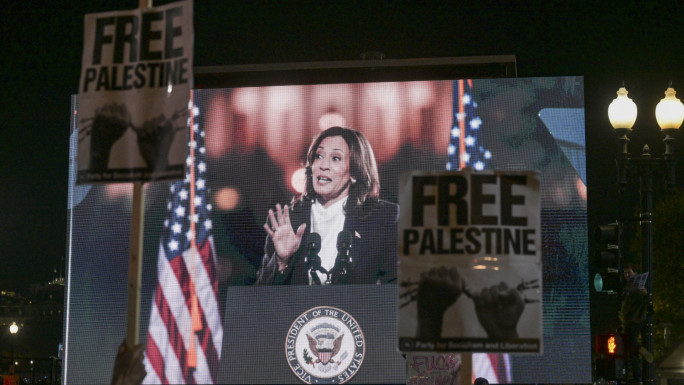
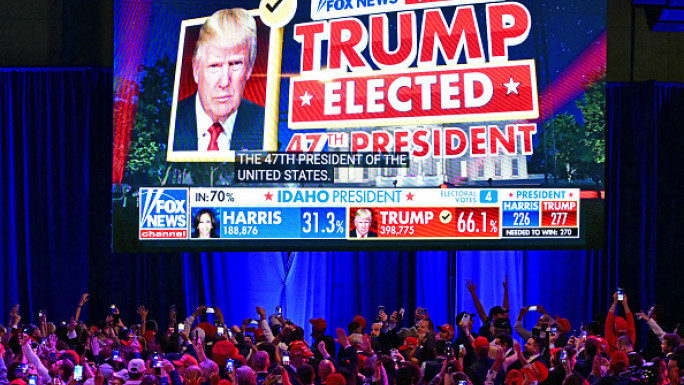
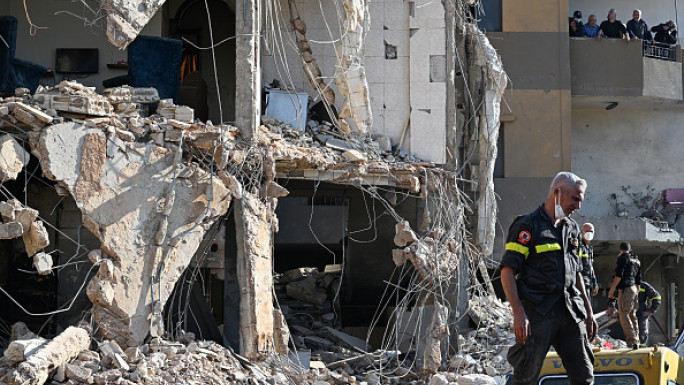

 Follow the Middle East's top stories in English at The New Arab on Google News
Follow the Middle East's top stories in English at The New Arab on Google News
